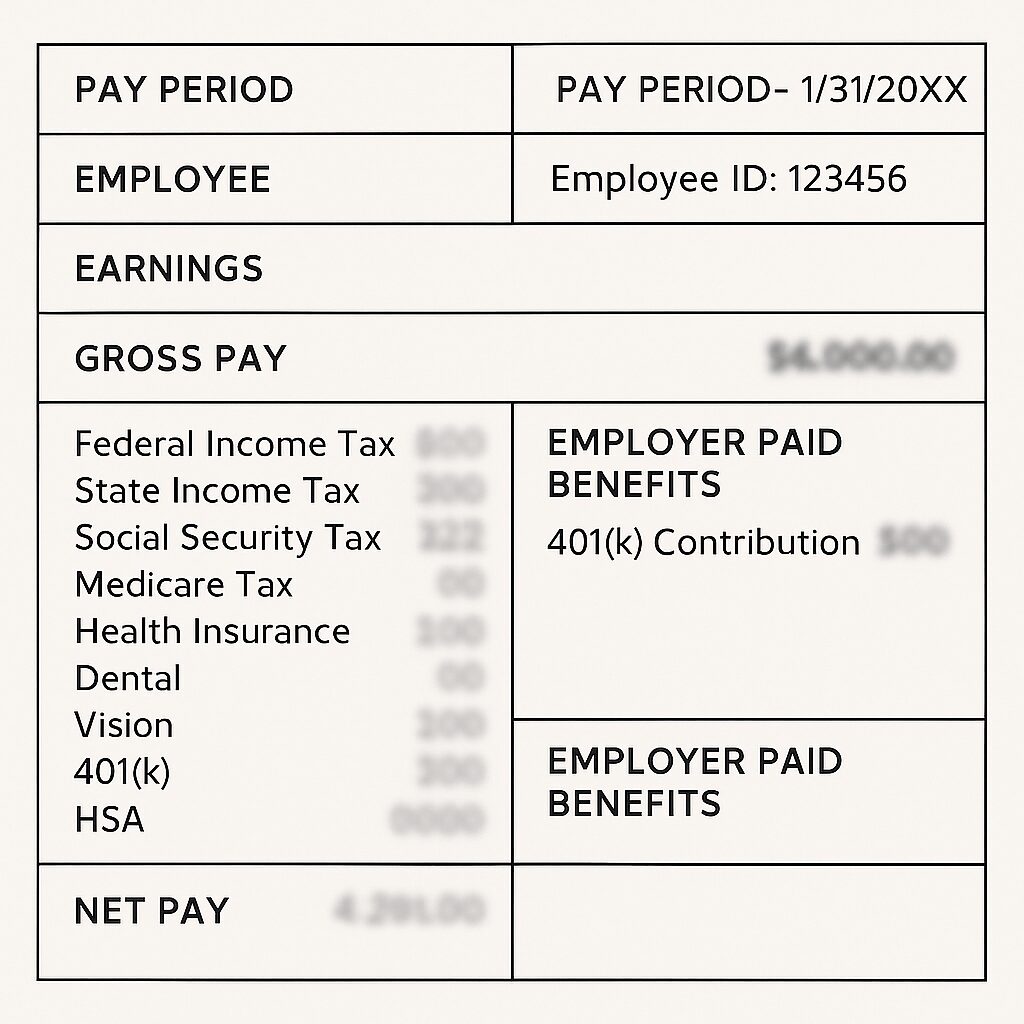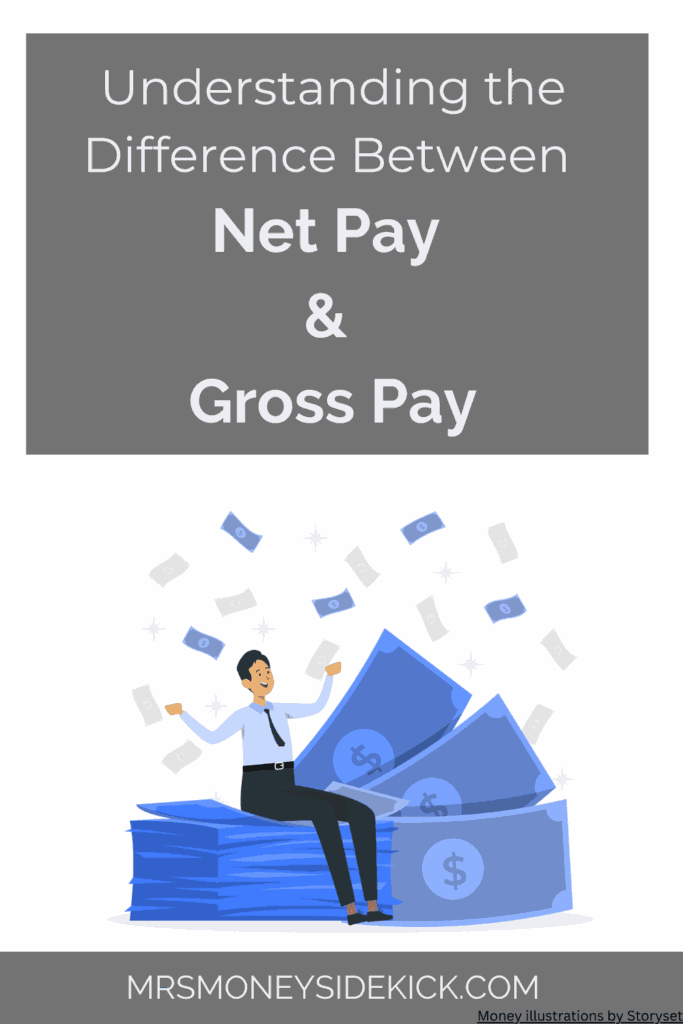Understanding the Difference Between Net Pay and Gross Pay
If you’ve ever looked at your paycheck and felt confused by the numbers, you’re not alone. Many people are surprised to find that the amount they were hired at doesn’t match the amount they take home. That’s why it’s so important to understand the difference between net pay and gross pay because what you earn and what you actually get can be very different.
In this article, we’ll explain the difference between net pay and gross pay, why it matters for your money goals, and how you can spot both on your pay stub.
What Is Gross Pay?
Gross pay is the total amount of money your employer agrees to pay you before any deductions. This includes your salary or hourly wages, and possibly other types of compensation like overtime, commissions, and bonuses.
For example, if your salary is $52,000 per year, that is your gross pay. If you’re paid biweekly, your gross pay per paycheck would be about $2,000 before taxes and benefits are removed.
Understanding the difference between net pay and gross pay starts here. Gross pay is the bigger number that appears before anything is taken out.
What Is Net Pay?
Net pay is your take-home pay, the actual amount you receive after all required and voluntary deductions are subtracted. This is what gets deposited into your bank account or printed on your paycheck.
Net pay = Gross pay – Deductions
Deductions can include:
- Union dues, garnishments, or flexible spending accounts
- Federal and state income taxes
- Social Security and Medicare
- Health and dental insurance premiums (HSA)
- Retirement contributions (401k)
Once you understand the difference between net pay and gross pay, it becomes easier to set a realistic budget. For instance, your gross pay might be $2,000, but your net pay could be $1,400 after deductions.

Why the Difference Between Net Pay and Gross Pay Matters
Knowing the difference between net pay and gross pay is critical because your net pay determines how much you can actually spend. Many people make the mistake of budgeting based on their gross income, which can lead to overspending and financial stress.
Even if you earn a high salary, not knowing the difference between net pay and gross pay can cause you to feel like you’re living paycheck to paycheck. That’s why it’s important to look beyond the salary offer and find out how much you’ll truly take home.
How to Read Your Pay Stub
Your pay stub or payroll portal will usually break down both gross and net pay, along with the deductions in between. Take a few minutes to review it and clearly see the difference between net pay and gross pay.
Look for these sections:
- Gross earnings
- Taxes withheld
- Insurance and retirement deductions
- Final net pay
This breakdown gives you a full picture of where your money is going.

💡 Pro-tip: Learn how to budget your first paycheck so you don’t overspend before the month’s even over!
Tips for Managing Your Pay
1. Budget Using Net Pay
Since your net pay is the actual money you have available, always build your budget using this number, not your gross income. This is a simple way to act on the difference between net pay and gross pay in your daily life.
2. Use Smart Deductions
Things like retirement contributions or health insurance lower your net pay, but they’re good for long-term savings and financial security. These benefits are a smart reason for the difference between net pay and gross pay.
3. Adjust Withholding if Needed
If you’re getting large tax refunds or owing too much at tax time, it could be a sign to adjust your W-4. This helps stabilize your paycheck and gives you more control over the difference between net pay and gross pay.
4. Plan for Raises
When you get a raise, remember that not all of it reaches your net pay. Deductions still apply. Knowing the difference between net pay and gross pay helps you avoid overestimating what you can spend.
💡 Pro-tip: Got a raise? Don’t let it disappear without a trace. Learn how to avoid lifestyle creep after your first raise → and make every extra dollar count!
Final Thoughts
The difference between net pay and gross pay might seem like a small detail, but it makes a big impact on how you manage your money. Once you understand it, you’ll be able to budget smarter, avoid surprises, and make better financial decisions.
Whether you’re starting a new job or reviewing your pay stub, don’t forget to look beyond the top number because what you keep matters more than what you earn on paper.
On your side,
Mrs. Money Sidekick
P.S. Want more practical financial tips? Explore our other Starting Out and Money Essentials guides on budgeting, saving, and getting the most from your paycheck!
Featured Image Money Illustrations by Storyset









One Comment